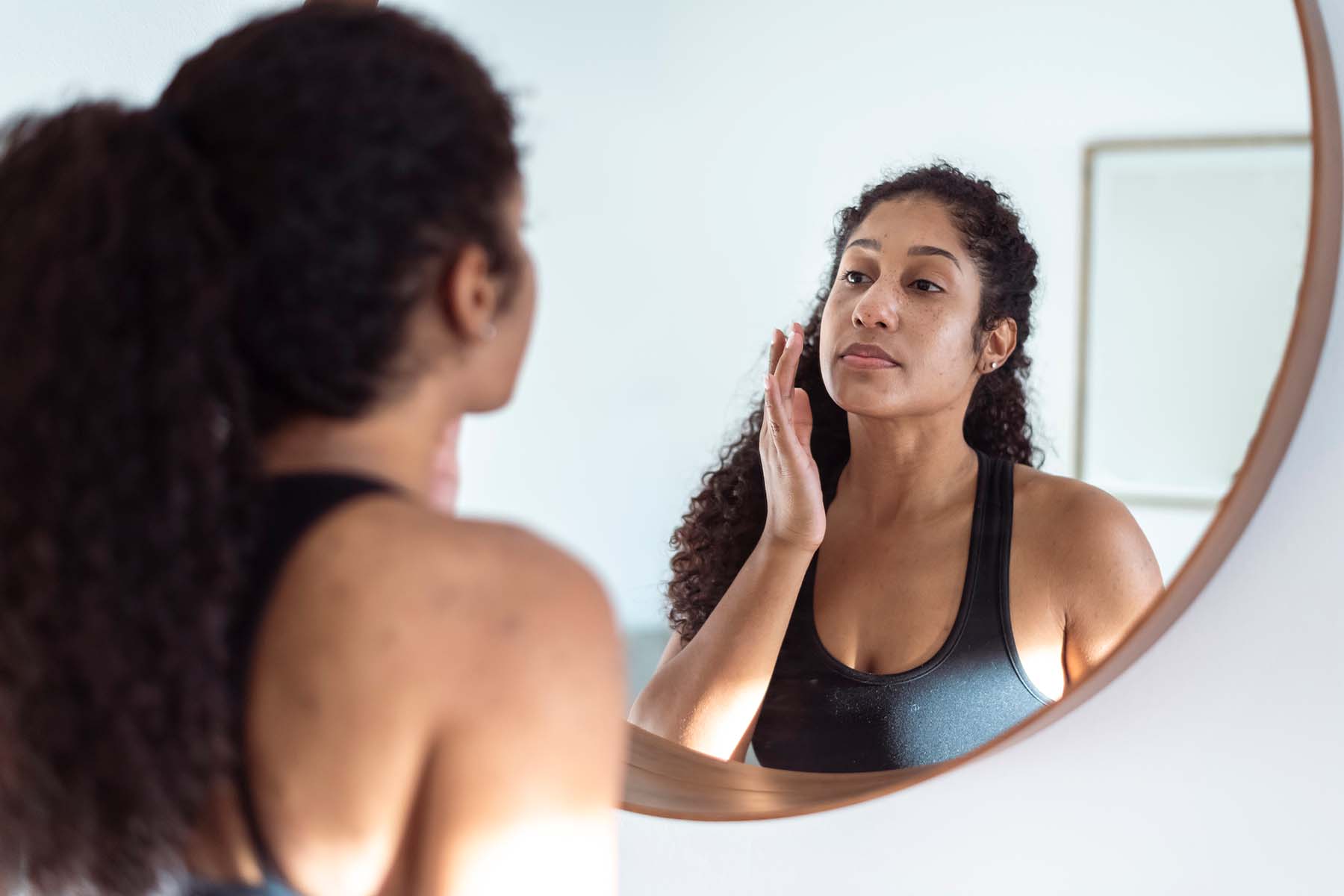More Adults are Complaining of Acne

There it is, unavoidable and embarrassing. A big pimple on the tip of your nose or a smattering of smaller ones across your forehead and chin. And you thought breakouts were the stuff of teenagers.
Adult acne is a thing, and some say there may be more of it than ever.
“We do see it more,” says Jonette Keri, M.D., Ph.D., an acne expert with the University of Miami Health System. “But we don’t really know if it’s because there’s really more of it or because more people are coming in to their dermatologists to get it treated. My general feeling is that there definitely is more but also that adults are recognizing it more.”
Adult acne afflicts people in their mid-20s and well into their 50s, even women going through menopause, a time when many believe teenage skin problems should be in the rear-view mirror. Some adults may not have even endured breakouts in their younger years.
Adult acne occurs more often in women than in men, probably because all acne is hormonal driven, Dr. Keri adds. Nearly half of all women ages 21 to 30 and about 25% of women ages 31 to 40 get acne, according to a 2012 study published in the Journal of Women’s Health. The study also found that about 12% of women in their 40s report flare-ups, though Keri believes that as many as 40% might still be suffering breakouts in their 40s.
Pimples don’t discriminate by age.
They form when dead skin cells and excess oil plug a pore. Bacteria can also flourish in this stew, which, in turn, can lead to infection and pus. Regardless of age, acne may take several months — and in some cases, years — to treat. But it’s definitely treatable.
Here are some reasons why you might still be getting a zit or two (or more) in your grownup years:
- Fluctuating hormones can lead to acne. That’s why women experience flare-ups during their periods as well as during pregnancy and peri-menopause. Though birth control pills are used to treat acne, starting or discontinuing them can actually result in a flare up as well. However, this doesn’t mean that acne is a sign of a hormonal imbalance, as touted by some advertisements for “natural hormone” treatment. Though certain diseases such as polycystic ovary syndrome may result in acne, most adults experiencing problems with acne have no measurable hormonal imbalance.
- Stress may be to blame — then again, dermatologists aren’t quite sure. “Stress probably does cause acne and there’s limited published material showing that, but it’s hard to define stress,” Keri says. “What’s stressful for one person may not be for another, and there are different levels as well.”
Published research has shown that when we feel stressed our bodies produce more of the hormone androgen, which stimulates the oil glands and hair follicles in the skin that often lead to acne.
Women, by the way, are “very sensitive to androgen,” the male hormone, which can explain why they experience more acne, Keri adds.
- Some foods might promote acne, but they’re not the ones typically blamed for skin problems. “There is more and more data pointing to high glycemic loads making acne worse,” Keri says. “So I make it a point to tell my patients to avoid those kinds of food.” Items with high glycemic loads, which is an estimate of how much that food will raise a person’s blood glucose level, include white bread, white rice and white pasta.
- Blame your parents for the breakouts. Family history may have something to do with your acne. “We believe there’s a genetic component, but we’re not sure exactly how to define that,” Keri says. “If you have a close relative who’s had acne, though, studies show you may have a genetic predisposition.”
- While the overwhelming number of beauty products will not cause acne, some might. Keri suggests staying away from any makeup considered “too thick,” such as theatrical makeup, and pick products for sensitive skin or acne-prone skin.
- Some medication can trigger acne or make it worse. If this is one of the side effects, ask your physician for a suitable substitute. If there is no alternative to the medication, a dermatologist can help control break-outs.
While adult acne can be frustrating, Keri says that almost all cases can be controlled with prescription lotions and oral medications.
In addition to birth control pills for women, other time-tested remedies have been shown to help. For example, spironolactone, an old blood pressure medicine, works well as an off-label medication to treat breakout in women who suffer flare ups around their menstrual cycle. (It is not used for men or teens.)
Treating mild to moderate acne topically can also be effective, though what works on a teen may not necessarily be good on adult skin. Topicals, including over-the counter products, should be less harsh and not too drying because older skin has less oil. Look for OTC gels and creams that contain about two percent salicylic acid.
“Adult acne often makes people feel as if they’re not at their best socially,” Keri says, “but a dermatologist can help. It may take a little work and patience, but we can definitely control it.”
UHealth offers dermatology services at numerous locations across South Florida, including the newest center at 7000 SW 62nd avenue, Suite PH-A in Miami. Call (305) 243-8900 to request an appointment.

In Their Words
Ana Veciana-Suarez, Guest Contributor
Ana is a regular contributor to the University of Miami Health System. She is a renowned journalist and author, who has worked at The Miami Herald, The Miami News and The Palm Beach Post. Visit her website at anavecianasuarez.com or follow @AnaVeciana on Twitter.
Tags: adult acne, dermatology, Dr. Jonette Keri, pimples, skin care
